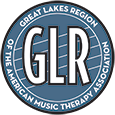The American Music Therapy Association now estimates that approximately 20% of music therapists receive third party reimbursement for the services they provide.
Music therapy is comparable to other allied health professions like occupational therapy and physical therapy in that individual assessments are provided for each client, service must be found reasonable and necessary for the individual’s illness or injury and interventions include a goal-directed documented treatment plan.
Since 1994, music therapy has been identified as a reimbursable service under benefits for Partial Hospitalization Programs (PHP). Falling under the heading of Activity Therapy, the interventions cannot be purely recreational or diversionary in nature and must be individualized and based on goals specified in the treatment plan. The current HCPCS Code for PHP is G0176.
Music therapy must be considered an active treatment by meeting the following criteria:
- Be prescribed by a physician;
- Be reasonable and necessary for the treatment of the individual’s illness or injury;
- Be goal directed and based on a documented treatment plan;
- The goal of treatment cannot be to merely maintain current level of functioning; the individual must exhibit some level of improvement.
Medicaid
There are currently a few states that allow payment for music therapy services through use of Medicaid Home and Community Based Care waivers with certain client groups. In some situations, although music therapy may not be specifically listed within regulatory language, due to functional outcomes achieved, music therapy interventions qualify for coverage under existing treatment categories such as community support, rehabilitation, or habilitation services.
Private Insurance
The number of success stories involving third party reimbursement for the provision of music therapy services continues to grow as more clinicians seek this coverage. In response to the increasing demand, the music therapy profession has worked to facilitate the reimbursement process for clients of music therapy services. Companies like Blue Cross Blue Shield, United Healthcare, Cigna, and Aetna have all paid for music therapy services at some time. Success has occurred on a case-by-case basis when the therapist implements steps within the reimbursement process. Like other therapies, music therapy is reimbursable when services are pre-approved and deemed medically or behaviorally necessary to reach the individual patient’s treatment goals.
Other Sources
Additional sources for reimbursement and financing of music therapy services include: many state departments of mental health, state departments of developmental disabilities, state adoption subsidy programs, private auto insurance, employee worker’s compensation, county boards of developmental disabilities, IDEA Part B related services funds, foundations, grants, and private pay.
